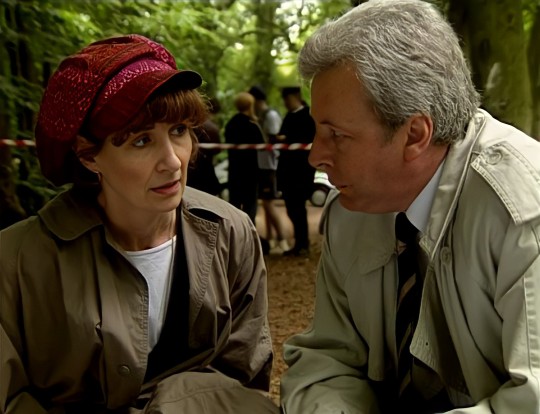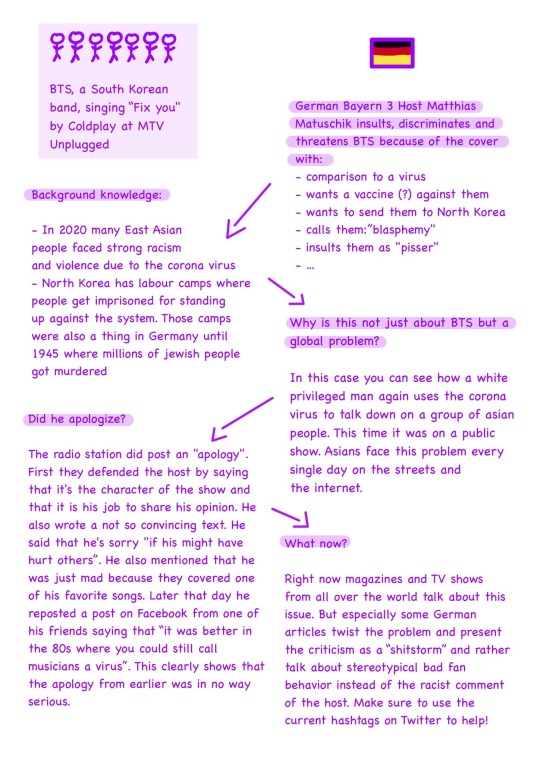#26 january speech in english
Explore tagged Tumblr posts
Text
Even though John is under-powered in this period we still see what made him so magnetic to Paul and to others around him. There is a scene early in Part Two that I find riveting. It takes place a couple of days after George has left. The status of everything - the project, the band - remains uncertain, but they are ploughing on for now. John, Yoko, Ringo, Paul and some of the crew are sitting in a semi-circle. Paul looks pensive. Ringo looks tired. John is speaking only in deadpan comic riffs, to which Paul responds now and again. Peter Sellers comes in and sits down, looks ill-at-ease, and leaves having barely said a word, unable to penetrate the Beatle bubble. At some point they’re joined by Lindsay-Hogg, and the conversation dribbles on. John mentions that he had to leave an interview that morning in order to throw up (he and Yoko had taken heroin the night before). Paul, looking into space rather than addressing anyone in particular, attempts to turn the conversation towards what they’re meant to be doing:
Paul: See, what we need is a serious program of work. Not an endless rambling among the canyons of your mind.
John: Take me on that trip upon that golden ship of shores… We’re all together, boy.
Paul: To wander aimlessly is very unswinging. Unhip.
John: And when I touch you, I feel happy inside. I can’t hide, I can’t hide. [pause] Ask me why, I’ll say I love you.
Paul: What we need is a schedule.
John: A garden schedule.
I mean first of all, who is writing this incredible dialogue? Samuel Beckett?
Let’s break it down a little. The first thing to note is that John and Paul are talking to each other without talking to each other. This is partly because they’re aware of the cameras and also because they’re just not sure how to communicate with each other at the moment. John’s contributions are oblique, gnomic, riddling, comprised only of songs and jokes, like the Fool in King Lear. Take me on that trip upon that golden ship of shores sounds like a Lennonised version of a line from Dylan’s Tambourine Man (“take me on a trip upon your magic swirling ship”). “We’re altogether, boy”? I have no idea. Does Paul? I think John expects Paul to understand him because he has such faith in what they used to call their “heightened awareness”, a dreamlike, automatic connection to each other’s minds. But right now, Paul is not much in the mood for it. His speech is more direct, though he too adopts a quasi-poetic mode (“canyons of your mind” is borrowed from a song by the Bonzo Dog Doo Dah Band) and he can’t bring himself to make eye contact. “To wander aimlessly is very unswinging,” he says (another great line, I will pin it above my writing desk). Then John does something amazing: he starts talking in Beatle, dropping in lyrics from the early years of the band, I Want To Hold Your Hand and Ask Me Why. (To appreciate John’s response to Paul’s mention of a schedule, American readers may need reminding that English people pronounce it “shed - dule”.)
What’s going on throughout this exchange? Maybe Lennon is just filling dead air, or playing to the gallery, but I think he is (also) attempting to communicate to Paul in their shared code - something like he loves him, he loves The Beatles, they’re still in this together. Of course, we can’t know. I can’t hide, John says, hiding behind his wordplay.
— Ian Leslie, "The Banality of Genius: Notes on Peter Jackson's Get Back" (January 26, 2022).
[I was curious to read more of Ian Leslie's approach to the Beatles in general and Lennon-McCartney in particular, since he's currently writing a book about John and Paul's relationship: “John and Paul: A Love Story in Songs". He's also the author of that New York Times opinion piece that came out today.]
#The Beatles#John Lennon#Paul McCartney#Get Back sessions#the person i actually picked as my partner#johnny#macca#I Want to Hold Your Hand#Tell Me Why#But I could never speak my mind#As we share in each other's minds#quote#my stuff#That Paul and John business
196 notes
·
View notes
Text

Footnotes 1 - 100
[1] Audre Lorde, Sister Outsider: Essays and Speeches (Berkeley: Crossing Press, 1984), 4.
[2] Raoul Vaneigem, The Revolution of Everyday Life, trans. Donald Nicholson-Smith (Seattle: Rebel Press, 2001), 26.
[3] Michel Foucault, “Preface,” in Anti-Oedipus: Capitalism and Schizophrenia, by Gilles Deleuze and Félix Guattari (Minneapolis: University of Minnesota Press, 1983), xi–xiv.
[4] The concept of the “public secret” originated with situationism, and we borrow it from the Institute of Precarious Consciousness, in their suggestion that anxiety is a public secret of contemporary capitalism. See Institute for Precarious Consciousness, “Anxiety, Affective Struggle, and Precarity Consciousness-Raising,” Interface 6/2 (2014), 271–300.
[5] Alfredo M. Bonanno, Armed Joy (London: Elephant Editions, 1998), https://theanarchistlibrary.org/library/alfredo-m-bonanno-armed-joy.
[6] See, for instance: John Holloway, Change the World Without Taking Power: The Meaning of Revolution Today, 2nd Revised Edition (London: Pluto Press, 2005), 19–42; The Invisible Committee, To Our Friends 216–219.
[7] The concept of sad militancy comes to us from Michel Foucault and Colectivo Situaciones. See Foucault, “Preface”; Colectivo Situaciones, “Something More on Research Militancy: Footnotes on Procedures and (In)Decisions,” in Constituent Imagination, ed. Erika Biddle and Stevphen Shukaitis (Oakland: AK Press, 2007), 73–93.
[8] Brian Massumi, “Translator’s Foreword: Pleasures of Philosophy,” in A Thousand Plateaus: Capitalism and Schizophrenia, by Gilles Deleuze and Félix Guattari (Minneapolis: University of Minnesota Press, 1987), ix–xv.
[9] Zainab Amadahy, “Protest Culture: How’s It Working for Us?,” Rabble.ca, July 20, 2010, http://rabble.ca/news/2010/07/protest-culture-how%E2%80%99s-it-working-us.
[10] This phrase is often attributed to Frederic Jameson who wrote “Someone once said that it is easier to imagine the end of the world than to imagine the end of capitalism.” See Frederic Jameson, “Future City,” New Left Review 21 (2003), 77.
[11] Gilles Deleuze and Félix Guattari, Anti-Oedipus: Capitalism and Schizophrenia (Minneapolis: University of Minnesota Press, 1983), 38.
[12] Audre Lorde, Sister Outsider (Trumansburg: Crossing Press, 1984), 53.
[13] “The Wild Beyond: With and for the Undercommons,” in The Undercommons: Fugitive Planning & Black Study, by Fred Moten and Stefano Harney (Wivenhoe: Minor Compositions, 2013), 10. http://www.minorcompositions.info/wp-content/uploads/2013/04/undercommons-web.pdf.
[14] Gilles Deleuze and Claire Parnet, Dialogues II, (New York: Columbia University Press, 2007), 61.
[15] Dean Spade, “On Normal Life,” interview by Natalie Oswin, Society and Space (January 2014), http://societyandspace.org/2014/01/15/on-6/.
[16] “Joy—Definition of Joy in English,” Oxford English Dictionary (Oxford: Oxford University Press, 2016), https://en.oxforddictionaries.com/definition/joy.
[17] Rebecca Solnit, “We Could Be Heroes,” EMMA Talks, Vancouver, February 17, 2016. http://emmatalks.org/session/rebecca-solnit/.
[18] Sara Ahmed, The Promise of Happiness (Durham: Duke University Press, 2010), 192.
[19] Leanne Betasamosake Simpson, “Indict the System: Indigenous & Black Connected Resistance,” LeanneSimpson.ca, http://leannesimpson.ca/indict-the-system-indigenous-black-connected-resistance/ (accessed November 28, 2014).
[20] Our interpretation of Spinoza’s concept of joy comes from many sources, but one of the most helpful is Mary Zournazi’s interview with the affect theorist Brian Massumi, in which he distinguishes joy from happiness. See Mary Zournazi, “Navigating Movements: A Conversation with Brian Massumi,” in Hope: New Philosophies for Change, by Mary Zournazi (New York: Routledge, 2002), 241–242.
[21] Gustavo Esteva, interview by carla bergman and Nick Montgomery, email, April 26, 2014.
[22] Silvia Federici, interview by carla bergman and Nick Montgomery, telephone, January 18, 2016.
[23] Lorde, Sister Outsider, 57.
[24] adrienne maree brown, interview by Nick Montgomery and carla bergman, email, November 11, 2015.
[25] This reading of Deleuze is indebted to conversations with Kim Smith and the reading she has developed of Susan Ruddick. See Susan Ruddick, “The Politics of Affect: Spinoza in the Work of Negri and Deleuze,” Theory, Culture & Society 27/4 (2010), 21–45.
[26] Bædan, “The Anti-Social Turn,” Bædan 1: Journal of Queer Nihilism (August 2012), 186.
[27] This notion of wisdom is drawn from Claire Carlisle’s helpful explanation of Spinozan wisdom as something akin to “emotional intelligence.” See Claire Carlisle, “Spinoza, Part 7: On the Ethics of the Self,” The Guardian, March 21, 2011, https://www.theguardian.com/commentisfree/belief/2011/mar/21/spinoza-ethics-of-the-self.
[28] Marina Sitrin, interview by Nick Montgomery and carla bergman, email, February 4, 2016.
[29] “Militant,” Wikipedia, https://en.wikipedia.org/w/index.php?title=Militant&oldid=754366474 (accessed December 12, 2016).
[30] Melanie Matining, interview by carla bergman and Nick Montgomery, in person, May 6, 2014.
[31] Jackie Wang, “Against Innocence: Race, Gender and the Politics of Safety,” LIES Journal 1 (2012), 13.
[32] Idem, 10.
[33] Glen Coulthard, interview by carla bergman and Nick Montgomery, in person, March 16, 2016.
[34] Ibid.
[35] Kiera L. Ladner and Leanne Simpson, eds., This Is an Honour Song: Twenty Years since the Blockades (Winnipeg: Arbeiter Ring, 2010), 1.
[36] Deborah B. Gould, Moving Politics: Emotion and ACT UP’s Fight against AIDS (Chicago: University of Chicago Press, 2009), 178.
[37] Sebastián Touza, interview by Nick Montgomery and carla bergman, email, February 2, 2016.
[38] Sebastián Touza, “Antipedagogies for Liberation Politics, Consensual Democracy and Post-Intellectual Interventions” (PhD dissertation, Simon Fraser University, 2008), 136–7. https://www.academia.edu/544417/Antipedagogies_for_liberation_politics_consensual_democracy_and_post-intellectual_interventions.
[39] For a fuller discussion of these dynamics, see Marina Sitrin, Everyday Revolutions: Horizontalism and Autonomy in Argentina (London: Zed Books, 2012).
[40] Margaret Killjoy, interview by carla bergman and Nick Montgomery, email, March 8, 2014.
[41] Anonymous, “Robot Seals as Counter-Insurgency: Friendship and Power from Aristotle to Tiqqun,” Human Strike, https://humanstrike.wordpress.com/2013/08/27/robot-seals-as-counter-insurgency-friendship-and-power-from-aristotle-to-tiqqun/ (accessed August 27, 2013).
[42] brown, interview by Nick Montgomery and carla bergman.
[43] The turn of phrase “making kin” comes to us from the feminist philosopher Donna Haraway. See Donna Haraway, “Anthropocene, Capitalocene, Plantationocene, Chthulucene: Making Kin,” Environmental Humanities 6/1 (2015), 161.
[44] Idem, 163.
[45] “Freedom—Definition of Freedom in English,” Oxford English Dictionary (Oxford: Oxford University Press, 2016). https://en.oxforddictionaries.com/definition/freedom.
[46] Douglas Harper, “Free (Adj.),” Online Etymology Dictionary, http://www.etymonline.com/index.php?term=free (accessed November 30, 2016).
[47] Ibid.
[48] Editors of the American Heritage Dictionaries, eds., Word Histories and Mysteries: From Abracadabra to Zeus (Boston: Houghton Mifflin, 2004), 103.
[49] Invisible Committee, To Our Friends, trans. Robert Hurley (South Pasadena: Semiotext(e), 2015), 127.
[50] Thomas Hobbes, Leviathan (Oxford: Oxford Paperbacks, 2008), Chapter XIII, Of the Natural Condition of Mankind.
[51] This short account of the Age of Reason is drawn primarily from Silvia Federici. See Federici, Caliban and the Witch: Women, the Body and Primitive Accumulation (New York: Autonomedia, 2004), 133–62.
[52] Some books we have found helpful include Jane Bennett, Vibrant Matter: A Political Ecology of Things (Durham: Duke University Press, 2010); Gilles Deleuze, Expressionism in Philosophy: Spinoza, trans. Martin Joughin (New York: Zone Books, 1992); Moira Gatens, ed., Feminist Interpretations of Benedict Spinoza (University Park: Penn State University Press, 2009); Antonio Negri, The Savage Anomaly: The Power of Spinoza’s Metaphysics and Politics (Minneapolis: University of Minnesota Press, 1991); Tiqqun, Introduction to Civil War, trans. Alexander R. Galloway and Jason E. Smith (Los Angeles: Semiotext(e), 2010).
[53] Our reading of Spinoza is drawn primarily from Deleuze and those he has influenced. For helpful introductions to this lineage, see Gilles Deleuze, “Lecture on Spinoza’s Concept of Affect” (Lecture, Cours Vincennes, Paris, 1978), https://www.gold.ac.uk/media/deleuze_spinoza_affect.pdf; Michael Hardt, “The Power to Be Affected,” International Journal of Politics, Culture, and Society 28/3 (September 1, 2015), 215–22; Brian Massumi, Politics of Affect (Cambridge: Polity, 2015).
[54] “Ethics—Definition of Ethics in English,” Oxford English Dictionary (Oxford: Oxford University Press, 2016), https://en.oxforddictionaries.com/definition/ethics.
[55] Deleuze, “Lecture on Spinoza’s Concept of Affect.”
[56] This anecdote is based on conversations and exchanges with Kim Smith.
[57] Invisible Committee, The Coming Insurrection (Los Angeles: Semiotext(e), 2009), 32.
[58] Haraway, “Anthropocene, Capitalocene, Plantationocene, Chthulucene.”
[59] Ivan Illich to Madhu Suri Prakash, “Friendship,” n.d.
[60] This is drawn from Anonymous, “Robot Seals as Counter-Insurgency.”
[61] Coulthard, Interview with Glen Coulthard.
[62] See for instance Maria Mies, Patriarchy and Accumulation on a World Scale: Women in the International Division of Labour (London: Zed Books, 2014); Andrea Smith, “Heteropatriarchy and the Three Pillars of White Supremacy: Rethinking Women of Colour Organizing,” in The Color of Violence: The Incite! Anthology, INCITE! Women of Colour Against Violence, eds., (Oakland: South End Press, 2006), 66–73; Andrea Smith, Conquest: Sexual Violence and American Indian Genocide (Cambridge, MA: South End Press, 2010); Federici, Caliban and the Witch.
[63] Silvia Federici, “Preoccupying: Silvia Federici,” interview by Occupied Times, October 25, 2014, http://theoccupiedtimes.org/?p=13482.
[64] Dean Spade, “For Lovers and Fighters,” in We Don’t Need Another Wave: Dispatches from the Next Generation of Feminists, ed. Melody Berger (Emeryville: Seal Press, 2006), 28–39, http://www.makezine.enoughenough.org/newpoly2.html.
[65] bell hooks, Outlaw Culture: Resisting Representations (New York: Routledge, 2006), 249.
[66] Leanne Betasamosake Simpson, “I Am Not a Nation-State,” Indigenous Nationhood Movement, November 6, 2013, http://nationsrising.org/i-am-not-a-nation-state/.
[67] Leanne Betasamosake Simpson, interview by Nick Montgomery and carla bergman, email, November 2, 2015.
[68] Raúl Zibechi, Territories in Resistance: A Cartography of Latin American Social Movements, trans. Ramor Ryan (Oakland: AK Press, 2012), 39.
[69] Idem, 41.
[70] Silvia Federici, “Permanent Reproductive Crisis: An Interview with Silvia Federici,” interview by Marina Vishmidt, July 3, 2013, http://www.metamute.org/editorial/articles/permanent-reproductive-crisis-interview-silvia-federici.
[71] Mia Mingus, “On Collaboration: Starting With Each Other,” Leaving Evidence, August 3, 2012, https://leavingevidence.wordpress.com/2012/08/03/on-collaboration-starting-with-each-other/.
[72] Gustav Landauer, Revolution and Other Writings: A Political Reader, ed. Gabriel Kuhn (Oakland: PM Press, 2010), 214.
[73] Idem, 90.
[74] Idem, 101.
[75] Idem, 91.
[76] scott crow, Black Flags and Windmills: Hope, Anarchy, and the Common Ground Collective, 2nd ed. (Oakland: PM Press, 2014), 199.
[77] Richard J. F. Day, Gramsci Is Dead: Anarchist Currents in the Newest Social Movements (Toronto: Between the Lines, 2005), 127.
[78] Richard J. F. Day, “From Hegemony to Affinity,” Cultural Studies 18/5 (2004), 716–48.
[79] Subcomandante Insurgente Marcos, Ya Basta!: Ten Years of the Zapatista Uprising, ed. Ziga Vodovnik, (Oakland: AK Press, 2004), 77.
[80] Gloria Anzaldúa, “(Un)natural Bridges, (Un)safe Spaces,” in This Bridge We Call Home: Radical Visions for Transformation, Gloria Anzaldúa and AnaLouise Keating, eds. (New York: Routledge, 2002), 3.
[81] Zainab Amadahy, “Community, ‘Relationship Framework’ and Implications for Activism,” Rabble.ca, July 13, 2010, http://rabble.ca/news/2010/07/community-%E2%80%98relationship-framework%E2%80%99-and-implications-activism.
[82] Coulthard, Interview by.
[83] Glen Sean Coulthard, Red Skin, White Masks: Rejecting the Colonial Politics of Recognition (Minneapolis: University Of Minnesota Press, 2014), 31.
[84] Coulthard, interview by Nick Montgomery and carla bergman.
[85] Leanne Simpson, Dancing On Our Turtle’s Back: Stories of Nishnaabeg Re-Creation, Resurgence, and a New Emergence (Winnipeg: Arbeiter Ring Press, 2011), 32.
[86] Luam Kidane and Jarrett Martineau, “Building Connections across Decolonization Struggles,” ROAR, October 29, 2013, https://roarmag.org/essays/african-indigenous-struggle-decolonization/.
[87] Harsha Walia, “Decolonizing Together: Moving beyond a Politics of Solidarity toward a Practice of Decolonization,” Briarpatch, January 1, 2012, https://briarpatchmagazine.com/articles/view/decolonizing-together.
[88] Coulthard, interview by Nick Montgomery and carla bergman.
[89] Friedrich Wilhelm Nietzsche, Thus Spake Zarathustra: A Book for All and None, trans. Thomas Wayne (New York: Algora Publishing, 2003), 42.
[90] Coulthard, interview by Nick Montgomery and carla bergman.
[91] Mingus, “On Collaboration.”
[92] Simpson, interview by Nick Montgomery and carla bergman.
[93] Ursula LeGuin, “Ursula K Le Guin’s Speech at National Book Awards: ‘Books Aren’t Just Commodities,’” The Guardian, November 20, 2014, https://www.theguardian.com/books/2014/nov/20/ursula-k-le-guin-national-book-awards-speech.
[94] scott crow, Black Flags and Windmills: Hope, Anarchy, and the Common Ground Collective, 2nd ed. (Oakland: PM Press, 2014), 173.
[95] adrienne maree brown, “That Would Be Enough,” adriennemareebrown.net, September 6, 2016, http://adriennemareebrown.net/2016/09/06/that-would-be-enough/.
[96] VOID Network, “VOID Network on the December 2008 Insurrection in Greece,” B.A.S.T.A.R.D. Conference, University of California, Berkeley, March 14, 2010, https://www.indybay.org/newsitems/2010/03/18/18641710.php.
[97] Many works within this current remain untranslated into English; however, there are a few English sources. In particular, we learned a lot from Sebastian Touza’s PhD dissertation and our interview with him. See Colectivo Situaciones, 19&20: Notes for a New Social Protagonism, trans. Nate Holdren and Sebastian Touza (New York: Minor Compositions, 2012); Deleuze, “Lecture on Spinoza’s Concept of Affect”; Marta Malo de Molina, “Common Notions, Part 1: Workers-Inquiry, Co-Research, Consciousness-Raising,” European Institute for Progressive Cultural Policies, April 2004, http://eipcp.net/transversal/0406/malo/en; Marta Malo de Molina:, “Common Notions, Part 2: Institutional Analysis, Participatory Action-Research, Militant Research,” European Institute for Progressive Cultural Policies, April 2004, http://eipcp.net/transversal/0707/malo/en; Touza, “Antipedagogies for Liberation Politics, Consensual Democracy and Post-Intellectual Interventions”; Touza, Interview with Sebastián Touza.
[98] Touza, “Antipedagogies for Liberation Politics, Consensual Democracy and Post-Intellectual Interventions,” 210.
[99] Nora Samaran, “On Gaslighting,” Dating Tips for the Feminist Man, June 28, 2016, https://norasamaran.com/2016/06/28/on-gaslighting/.
[100] Matt Hern, “The Promise of Deschooling,” Social Anarchism 25 (1998), http://library.nothingness.org/articles/SI/en/display_printable/130.
#joy#anarchism#joyful militancy#resistance#community building#practical anarchy#practical anarchism#anarchist society#practical#revolution#daily posts#communism#anti capitalist#anti capitalism#late stage capitalism#organization#grassroots#grass roots#anarchists#libraries#leftism#social issues#economy#economics#climate change#climate crisis#climate#ecology#anarchy works#environmentalism
9 notes
·
View notes
Text
BATFILES: Cassandra Cain
FULL NAME: Cassandra Cain
ALIAS: Black Bat, prev. Batgirl, prev. Orphan
DATE OF BIRTH: January 26, 1997
HAIR: Dark brown, straight
EYES: Brown
SKINTONE: Tanned
HEIGHT: 5'3"/160cm
WEIGHT: 123lbs/56kg
ETHNIC BACKGROUND: Chinese, English, Scottish
DISTINCTIVE SCARS AND MARKINGS: two bullet scars on left thigh, several scars on both forearms and hands, small scar on right cheekbone
LANGUAGES: English and ASL
ADDITIONAL INFORMATION: due to the speech isolation she suffered through the critical period of speech development, she has not mastered correct grammar
#batfamily#dc comics#dc universe#cassandra cain#blackbat#batgirl#orphan#I studied the case of Genie for her speech development#because she acquired language so late in her life she missed that critical period of development#so realistically she would struggle to form complex sentences#she had a much easier time with ASL#her speech comprehension is good though#she and jason have matching scars on their cheekbones#the first time she points it out happily he is baffled#coz his face is busted and thats what she notices#her languages next to everyone elses looks so normal#sorry but chinese is out of the question#someone would speak cantonese or something at her and she would just cry#batfiles
14 notes
·
View notes
Text
Coming up is Republic Day, and many people have requested for a simple English Republic Day speech. You can recall the English Republic Day speech if you practise it more than five times. Confidence is the finest approach when giving a speech. You can recall the speech and recount it anywhere...
.
#advaitamelearning #advaitamhsr
#advaitamelearning#youtube#republicdayspeech#happyrepublicday#republicday2024#speechwriting#ytshorts
1 note
·
View note
Text
Wolfgang Amadeus Mozart composed the aria "Come scoglio" in his opera Così fan tutte to make the singer Adriana Ferrarese del Bene bob her head like a chicken 🐓
Here's some more information about the aria and the opera:
Aria
"Come scoglio" is a showpiece aria written for a dramatic coloratura soprano, a type of soprano that can perform with great technical skill and a wide range of emotions
Opera
Così fan tutte is an opera that translates to "Women are like that". It's considered an ensemble opera and is known for its many stand-out arias.
Ferrarese del Bene
Ferrarese del Bene was an Italian operatic soprano who was the first performer of Fiordiligi in Così fan tutte. She was known for dropping her chin on low notes and throwing back her head on high notes.
Così fan tutte in a nutshell
What is the story about?
The opera’s full title Così fan tutte, ossia La scuola degli amanti means ‘They all do it, or The School for Lovers’. The story begins with experimental philosopher Don Alfonso, who wants to overturn the perfect, formulaic worlds of two young men, Ferrando and Gugliemo. He bets them that both their fiancées would not stay faithful if tempted, and the challenge is accepted.
Before long, the fiancées Fiordiligi and Dorabella (who are also sisters) discover that their lovers are leaving to ‘go to war’, and suddenly two handsome strangers (Ferrando and Gugliemo in disguise, obviously) arrive on a mission of seduction. As Don Alfonso ups the ante and throws increasingly extreme situations at all four lovers, they begin to react emotionally and each character can’t help but discover – and reveal – who they really are. Who will end up with who?
Who are the characters?
Fiordiligi [fior-dil-I-gi] — fiancée of Guglielmo
Dorabella [dor-a-BELL-a] — fiancée of Ferrando
Ferrando [ferr-AN-do] — fiancé of Dorabella
Guglielmo [gu-li-EL-mo] — fiancé of Fiordiligi
Don Alfonso [don al-FON-so] — an old philosopher and cynic
Despina [des-PI-na] — a maid
Così fan tutte is said to be the perfect ensemble opera — the six roles are almost equal in weight and importance, without a ‘leading lady’.
What is the music like?
Così fan tutte contains some of the most sublime music Mozart ever wrote. It has an intricate combination of arias, duets, trios, quartets and sextets, with the vocal lines closely interwoven. Highlights include:
— the famous trio ‘Soave sia il vento’ (‘O wind gently blowing‘) – you can hear the breeze in the strings
— Ferrando’s tender ‘Un’aura amorosa’ (‘Our love is a flower‘)
— Fiordiligi’s show-stopping ‘Come scoglio‘ (‘Like a rock’), in which she insists that she will remain faithful – it’s full of spectacular vocal fireworks!
As an opera of the classical period, all the musical phrases are perfectly balanced, and the arias are connected by ‘recitative’ (sung speech performed with ‘continuo’ such as harpsichord accompanying the singers), where the plot development happens.
It premiered in Vienna on 26 January 1790. The libretto (text) was written by Lorenzo da Ponte, who was also Mozart’s librettist on the highly successful operas The Marriage of Figaro and Don Giovanni. Così fan tutte is sung in English translation (with English titles) and lasts approximately 3 hours, including one interval.
Did you know?
— In 1994, two works by Mozart’s peer (and rival), Antonio Salieri were discovered, showing that Salieri also started to set the libretto of Così fan tutte to music, but did not complete the project.
— Mozart’s own life slightly resembled the story of Così fan tutte for a time – a few years before he married his wife Constanze Weber, he was engaged to her sister Aloysia.
— Mozart created the role of Fiordiligi for da Ponte’s mistress Adriana Ferrarese del Bene. However, he did not like her, and having spotted her tendency to drop her chin on low notes and throw back her head on high ones, he filled showpiece aria ‘Come scoglio’ (‘Like a rock/fortress’) with constant leaps from low to high and high to low in order to make the prima donna’s head “bob like a chicken” on stage!
Thank you @ operanorth.co.uk
The piece in question. Listen around the two minute mark for some dramatically shifting notes 👇
youtube


38 notes
·
View notes
Text
0 notes
Link
आप सभी को सुप्रभात…
मेरा नाम_____ है और मैं_____ कक्षा में पढता हूँ/शिक्षक हूँ। जैसे कि हम सभी जानते हैं कि आज हम सभी यहाँ इस विशेष अवसर पर एकत्र हुए हैं। जिसे हम भारत के गणतंत्र दिवस के नाम से मनाते हैं।
मैं आज के इस महान ख़ुशी के दिन पर आप सभी लोगों को भारत के गणतंत्र दिवस के विषय में कुछ महत्वपूर्ण बातें बताना चाहता हूँ।
Read More:- Republic Day Speech In Hindi

#speech on republic day in hindi#Republic Day Speech#Republic Day Speech in Hindi#Republic Day Speech in English#26 January Speech in Hindi#26 January Speech in English
0 notes
Text
Republic Day 2022: Images, Quotes, Wishes, and History
Republic Day 2022: Images, Quotes, Wishes, and History
Republic Day 2022: Images, Quotes, Wishes, and History What is the Meaning of “Republic”? India, the second most populated country and the largest democracy in the world, got its freedom on the day of 15th August 1947. That is the reason why we celebrate our Independence Day every 15th August. However, India became a Republic on the 26th of January 1950 and we enjoy this day as “Republic…

View On WordPress
#2021 republic day#26 january#26 january 2022 speech in hindi#72th republic day of india#difference between independence day and republic day#first republic day#flag hoisting time on 26 january 2021#flag hoisting time on 26 january 2022#independence day#Newsoholic24x7#republic day#republic day 2022#republic day essay#republic day history#republic day in hindi#republic day speech#republic day speech in english
0 notes
Text
speech on republic day 26 january
speech on republic day 26 january
speech on republic day (26 January) for students and teachers speech on republic day 26 January Never Forget The Hero’s Who Sacrificed Their Lives To Bring Up This Glorious Day To India, Happy Republic Day Let us remember the golden heritage of our country and feel proud to be a part of India. Happy Republic Day 2022 Some like Sunday, Some like Monday, But I like One…

View On WordPress
#republic day Speech#speech on republic day#speech on republic day 26 January#speech on republic day in English#The history of republic day
1 note
·
View note
Photo






Celebrating Caroline John
Caroline Frances John (19 September 1940 - 5 June 2012) was an English actress who played companion Liz Shaw in Doctor Who during its seventh season. She revived the character for the BBV P.R.O.B.E. video series, as well as the Big Finish Companion Chronicles line of audios.
John was the third of eight children born to Vera (née Winckworth), an actress and singer, and Alexander John, a theatre director. She was educated at St. Joseph's convent school, Crackley Hall in Kenilworth.
After training at the Central School of Speech and Drama, she worked in theatre and toured with the Royal Shakespeare Company and the National Theatre Company. She appeared in Juno and the Paycock in a 1966 production directed by Laurence Olivier, King Lear, Rosencrantz and Guildenstern are Dead, The Merchant of Venice and as Hero in Franco Zeffirelli's production of Much Ado About Nothing.
John played the role of the Doctor's companion in 1970 opposite Jon Pertwee's Third Doctor. John was recommended to then Doctor Who producer Peter Bryant by another BBC producer, James Cellan Jones, who sent Bryant and his associate Derrick Sherwin photographs of her. Unlike most of the preceding and subsequent female companions of the Doctor, Shaw was a brilliant scientist and understood much of the Doctor's technobabble. Shaw and the Doctor discussed things on a more equitable level of intelligence, and the Doctor respected and rarely patronised her. New series producer Barry Letts believed the character was too intellectual to be a suitable companion to the Doctor and decided against renewing her contract for the next season.
During her final story, Inferno, John also played the part of Section Leader Elizabeth Shaw, an alter ego of her regular character that the Doctor encounters in an alternative time stream. John reprised the role of Shaw, albeit as a phantom, in the anniversary episode The Five Doctors, and also appeared in the special episode Dimensions in Time (1993), part of the BBC's annual Children in Need appeal. In the 1990s she appeared in a series of straight-to-video releases including The Stranger: Breach of the Peace, and as Liz Shaw in the P.R.O.B.E. stories written by Mark Gatiss. In these stories made by the production company BBV, a pipe-smoking Shaw works as an investigator (for the P.R.O.B.E. organisation).

John later appeared in two Big Finish Productions' audio dramas based on Doctor Who; Dust Breeding (2001), although playing a character other than Liz Shaw, and The Blue Tooth (2007) where, as Liz, she recounts in narrative form an adventure she once had with the Doctor and UNIT. After The Blue Tooth she played Liz in four more Companion Chronicle audio plays; Binary, The Sentinels of the New Dawn and Shadow of the Past. Her final audio play, The Last Post, which she recorded on 26 January 2012, was released after her death.
In addition to her role as Liz Shaw, Caroline John appeared as Laura Lyons in a 1982 televised version of The Hound of the Baskervilles, starring Tom Baker as Sherlock Holmes. She also appeared in episodes of Z-Cars, Casualty, The House of Elliot, and EastEnders.
John read most of the audiobook of Elisabeth Sladen's posthumously-released autobiography, with David Tennant, Brian Miller and Sadie Miller reading their contributions.
John was married to actor Geoffrey Beevers. The couple had three children: a daughter, Daisy, and sons Ben and Tom. She died on 5 June 2012 from cancer.
#Caroline John#Doctor Who#Jon Pertwee#Mark Gatiss#Bill Baggs#BBV#PROBE#Preternatural Research Bureau#Liz Shaw#UNIT#United Nations Intelligence Taskforce
24 notes
·
View notes
Text
The Charivari Awards of 1862


I started translating this because there’s one joke about Les Misérables but ended up translating the whole thing because, like my fav chapter 1817, this gives a little peak into 1862. Source: Le Charivari, 26 August 1862
The distribution of prizes has been finished for many days in all the secondary schools, and the Charivari has not yet given out its annual awards to those who merit it the most. It is but a little slip that we are hurrying to fix. In fact we are distributing those prizes today; better late than never.
No useless speeches and let's cut to the chase! French Language Prize First prize to Victor Hugo for his masterpiece Les Misérables. A bishop (whispering to his neighbor): Well, what do you think? 2nd bishop: It’s horrible. 3rd bishop: It’s vile! Anyone could write les Misérables, but no one is capable of writing petitions like those we issued on our return from Rome.
Architecture This year we are not awarding a prize for architecture, we are waiting for the great opera house to be finished. [The foundation of the Opera Garnier had been poured that January but the experienced problems due to lots of groundwater as Phantom of the Opera buffs will know] M. Davioud [collaborator of Haussmann during the second empire] (to the side): Good heavens! And here I imagined taking home first prize. I am horribly vexed. What upsets me the most is that I made all my friends and acquaintances come to applaud for me. Painting First prize goes to Mlle. X…, celebrity of the underworld [I am guessing this is a reference to Mademoiselle V...by Manet but could be wrong] All the dandies: Bravo Mlle. X…bravo! Mlle. X… is not present for the call, the prize is put to the side and will be sent by a delegate. Music Honorable prize to M. Felicien David for his opera of Lalla-Roukh. [It was the hit opera of 1862 apparently] Big Box/Bass Drum [I am so confused by this one. The title is Gross Caisse if that means anything to anyone] First prize… Here the embarrassment of the examiners was very strong. Indeed, to whom should this first prize be awarded? because forty three general stores [magasins de nouveautés, a precursor to the department store] earned it.
This rivalry proves that our generation is quite a nice force on this noisy instrument. Therefore we have decided to share this award.
First prize goes to a general store that gave a discount of 105 fr. due to change of owner.
Second prize to a tailor who for 13 francs gives out a frock coat and a ticket to see the sea by pleasure train.
Third place goes to to Mlle B****, an actress, who sold her furniture to get people talking about her. Arithmetic First prize to numerous restauranteurs for their talent at making large additions.
Second prize to M. Z…speculator, vert adept in subtraction.
Certificate of merit to the sultan, very strong in retaining things–when it comes to paying his troupes. [any guesses who this is referring to? Is it Napoleon III? Does this have to do with the colonization of Algeria? I am really lost] Second certificate of merit to the Americans of the north and the south who have much disposition for division. Geometry Prize of honor to Mlle Theresa, a young doe who is iron clad in that science. She knows that for a young man the shortest route to get to Clichy is to pass by her. [?] Chemistry A unique prize goes to the political writer Three-Stars who, without any preparation, knows how to make a paper turn all colors from white to blue to red. [les Trois-Etoiles was a pseudonym of English journalist Eustace Clare Grenville Murray though I don’t quite no the sandal maybe the answer could be found in here] An assistant: In chemistry terms that is called precipitating [also means rushing], isn’t it? The neighbor: Yes The assistant: Precipitating so much could end with his breaking his neck. The neighbor: That’s his problem. Why is he ambitious and desiring to win first prize? Perseverance Prize of honor to Russia. Never has a nation better persisted in refusing all the concessions that are asked of Poland. Manners First prize to Austria that washes everything it has to pay its debts. Consolation prize As the custom is to give a consolation prize to those who didn’t win anything, we will follow the custom. First prize to Poland for continuing to be patient.
Second prize to M. Vulture, store owner, who decreased by 35 francs a rent of 6 thousand francs. We must encourage him. Ladies and gentlemen, the awards are over. We hope we’ve upset less people than the Conservatory.
13 notes
·
View notes
Photo

Republic Day is a day to remember when the Constitution of India officially came into force on January 26, 1950. This historical act formally transitioned India to become an independent republic and hence it is celebrated on January 26 every year. Get more Republic Day Image HD at https://medium.com/@oarticle1/exclusive-26-january-republic-day-speech-in-english-2020-a6c96eeffc59
0 notes
Note
why didn’t you say anything about the racism bts have faced these past days :(
Hey anon!
I actually haven‘t been online here because of the racism debate. I was on twitter and was supporting it there on two accounts nonstop! if you want to follow me, my @ is also jeonjk0504 :)
You are completely right though, i should have spoken up on my platform here sooner, to educate my followers on this really important matter!
If i make mistakes or should word things differently, please let me know, as you can tell i‘m not native.
The short version:

Credits to @ squishykosmos (twt)!
What happened?
3 days ago, the german radio host Matthias Mattuschik from the station Bayern3 spew racist remarks about BTS because of their MTV Unplugged cover of coldplay. He is a fanboy of coldplay and only wanted to introduce their song ‚Fix you‘ but somehow it was necessary to explain to his listeners why it was an utter insult that BTS had an MTV unplugged concert (he called it paradox, because it‘s a boyband) where they were allowed to cover his favorite song. Coldplay allowed the cover by the way and even commented on it positively.
Here are two links from his original rant, translated in english:
https://twitter.com/bts_updates_ger/status/1365211269133971458?s=21 (Part 1)
https://twitter.com/atinystrawbery/status/1365052883771785219?s=21 (Part 2)
As a german i know that to other people our language sounds quite agressive in general, but this is a whole different level. This isn‘t said in a jokingly way, it‘s pure hatred.
He called BTS a virus against which hopefully there will be a vaccine soon, that their cover of coldplay is blasphemy and that they are little pisser who should get a 20-year vacation in North Korea. Considering the rising violence against Asians all over the world because of Covid, his speech is extremely harmful and normalizes hate against Asians apart from the fact that it was racism in it’s purest form. Why the wish for a South Korean Group to have vacation in the North Korean dictatorship is inhumane and racist, i hopefully don‘t have to explain further. He even said, he can‘t be xenophobic, because he drives a korean brand car (which turned out to be japanese). The new ‚i can‘t be racist, i have a black friend‘.
This also hasn‘t been the first time, in 2018 he made an antisemetic comparison between smoker and jews for which he got a little attention, but no consequences.
Furthermore ARMY dug up a picture on his instagram from 2020 with the caption ‚ Is more evidence needed?!?,‘

A short note:
What makes this even more infuriating is that the radio station is regulated by public-law and german citizens are OBLIGATED to pay for it. We literally are forced to pay money to a radio station that broadcasts openly racist slurs! And no, it‘s not allowed. They have policies that explicitly say they are not allowed to discriminate, they have to support diversity and have to be politically and economically independant.
Do they give a fuck? Apparently not really.
Did Bayern3 answer the hashtags and the pressure?
They did, first came a short nonpology where they said that the show, which Matthias Matuschik is broadcasting, is known for his direct and honest opinions and that he could have worded it better. They are sorry if anyone felt insulted, which is excusing the feeling of the fans, but not the act in itself.
After Army answered with the hashtag ‚Racism is not an opinion‘ and various media coverage surfaced, they posted a second ‚apology‘, where they -again- said that they are distancing themselves from what was said and Matthias has always been an avid supporter of refugees so he is very far away from being a racist. (Supporting refugees doesn’t excuse you from saying racist things though.) Matthias stated that he is shocked from the reactions, that he is ‚sorry if people felt what he said was racist‘ and that his family is getting death threats. (which is in no way acceptable of course.) They would review what was said so it doesn‘t happen again.
Here you can read the statements in german and translated in english:
First statement: https://twitter.com/bts_updates_ger/status/1365087239756259330?s=21
Second statement: https://twitter.com/bts_updates_ger/status/1365305564050382849?s=21
This would have probably been the beginning of a conversation, if Matthias wouldn‘t have went to facebook after his second apology to like a supporting post that basically stated that the topic is way overhyped and in the 80s you were allowed to say your opinion without people getting butthurt (this is a short form.) He completely revised his remorse literally the same day after the updated apology and supported a statement that was gaslighting the people who critized him. You can read the facebook post here:
https://twitter.com/traveltomyrm/status/1365321397342461957?s=21
Since then: Nothing. My mom told me yesterday they‘re playing dynamite a lot, i told her to switch the channel.
News Coverage
Thankfully, we got a lot of support from I-ARMY and K-ARMY, otherwise we wouldn‘t have been able to trend the hashtags day and night and kept them in the top categories in germany and worldwide. We also got a lot of support from international media who called out the racism and put them into context in really amazing articles. (Also K-Media and J-Media but i only have screenshots, no links) Here are a few of them:
https://rollingstoneindia.com/xenophobic-german-presenters-comments-about-bts-are-just-the-tip-of-the-racist-iceberg/
https://www.forbes.com/sites/bryanrolli/2021/02/26/bts-were-once-again-the-subject-of-racist-on-air-remarks-and-received-a-pathetic-non-apology/
We even got celebrities like halsey, max, lauv, steve aoki, JJ Ryan, DJ Swivel, Liam McEwan, Zara Larsson, MTV UK, Columbia Records and some more bring attention to the issue and show their support for BTS in the face of racism.
This support was probably the reason why we even got a second ‚apology‘, because guess what? German media ain‘t having it. Since the beginning of our protest, i think i saw 2 articles in total which actually called it racism, various newspapers and online magazines were downplaying it by talking about ‚insults‘ and concentrating on Matthias calling BTS pisser instead of quoting the actual racist remarks he made. We got no TV news whatsoever. So naturally, german locals looking at this protest think that Fans are going on a rampage because their favorite boygroup got insulted.
It has been maddening. The radio station and host have been trying to sit this whole thing out for days, in hope we lose energy over the weekend and it‘s draining to not be heard or taken seriously. For me it‘s still a priviledged perspective, because i don‘t have to bear consequences when this thing is over, one way or another. But for Asians in our country, also some of my friends, this horror in times of covid will continue. The lack of serious German Media coverage has been frustrating and embarrasing to say the least, but also shown again, that the topic gets overshadowed by prejudices against KPop, the fanbase and Asians as part of satirical fun (which it isn‘t).
Why is that?
This is my personal take and not a deep analysis, just my personal observations: Germany might be progressive in a lot of aspects, but they still have deeply ingrained every day racism against asians and they have a huge problem realizing and admitting to that. We don‘t have a lot of asian representation and there is a huge alieniation from asians for a lot of german 50+ (also less, but those are the ones in power mostly). Racism against Asians is not seen enough and people don‘t empathize, partly because they‘re white privileged people who don‘t have to live with certain stigma, partly because they simply don‘t care to educate themselves about minorities in their own country. This ignorance is widespread, if it doesn‘t happen in front of your doorstep, it‘s probably nonexistant. It‘s also not only reserved for Asians, january 2021 we had a talkshow where 5 white german people talked happily about what minorities such as Romani people think as insulting or racist. They did get a lot of backleash because obviously they talk about matters, without letting minorities be part of the discussion, but real consequences? Nope.
I doubt that this protest will get Matthias Matuschik fired (which it should if you are openly racist on a public platform), because the pressure is too low and the radio station has shown with their first statement that they thought it‘s rather funny than problematic. But i don’t know what‘s going to happen. Apart from being an ARMY, i am an adult who condemns racism in any way or form. Why german media chooses to overlook the essence of the debate and makes it a hystercial fanbase issue is beyond me.
If you want to have a look yourself, you can follow German Fanbase accounts, such as @ BTS_UPDATES_GER for updates in german and english.
And at last, here is a thread on how german media reproduces Anti Asian Racism : https://twitter.com/storiesbythuy/status/1366073706817196046?s=21
German Armys are trying to come up with a plan to gain more attention for the topic at the moment, so we‘ll see how things turn out! Please support us if possible!
52 notes
·
View notes
Text

ϟ ━ was that EMMELINE VANCE around the leaky cauldron ? SHE disapparated before i could approach them ! what a pity, for they are DETERMINED and LOYAL, but maybe it's best to keep my distance because they are also CLUMSY and FIERY. i remember that they were a RAVENCLAW back in school but have since made a name for themselves as a DAILY PROPHET JOURNALIST. if this alleged war came knocking on their door, it is supposed that they would FIGHT FOR DUMBLEDORE ( cis woman & she/her / zoey deutch / 26 / half-blood).
biography & statistics below the cut
𝒷𝒾𝑜𝑔𝓇𝒶𝓅𝒽𝓎
Emmeline Vance has always been described as ‘capable’. From a young age she was solving puzzles in creative ways and forging a path for herself early in life. Her parents offered Emmeline a safe and happy childhood, although they both worked long, exhausting hours at the ministry meaning that child-care was left to her grandfather who owned Honeydukes sweet shop. As a small child, there was nothing that Emme loved more than suggesting new sweets her grandpa to try and make to try and then helping him make the ideas from her imagination into a reality. When she was six years old, her grandpa gave her her own little apron and nametag for when she was at the store.
Helping out at the store truly shaped Emme as she grew up. All sorts of people stopped by the store in their trips to Hogsmeade - all shapes, all sizes, all races, all blood statuses. Emme naturally became kind and compassionate, willing to help whoever might need it no matter what their background. Her first signs of magic showed in the store - she had to carry 3 tubs of jelly slugs from the cellar to the top of the store, and managed to levitate one in front of her like grandpa did with a degree of concentration after huffing about the fact she couldn’t carry three with her little hands. Certainly, her grandfather was more of a parent than her own parents ever were.
The issue of parenting came to a head just before her ninth birthday, when her parents decided that they were going to move to France to start life afresh. Emme’s father had been offered a job at the French Ministry and they had taken it easily, jumping at the opportunity to start life again in the beauty of France. But Emme’s little heart broke at the idea of not only being taken away from Britain and the promise of Hogwarts, but from the most important person in her young life. A few roaring arguments between her father and grandfather while Emme was supposed to be sleeping (but was really hovering at the top of the stairs trying to listen to what the adults were saying) and the three adults called her downstairs asking her a simple question.
“Would you rather live in Britain with grandpa or move to France with Mummy and Daddy?”
Emme never answered verbally, but instead ran over and clung to her grandpa’s leg, who had been more of a father to her than her own father had. It wasn’t their fault, of course, that they worked long hours and hardly ever saw their daughter - but Emme’s decision was easy. And so it was that within the next few months Emme’s parents prepared to move away and prepared to leave their daughter behind (promising visits, of course). In January, her parents were gone leaving her to live with grandpa and grandma in their small flat above the store. Life passed by peacefully until her eleventh birthday arrived and with it, a letter inviting her to Hogwarts.
On her first day at Hogwarts, Emme learned that not everyone was as kind as her. Her grandfather had pulled her aside at Hogsmeade station before she ran to join the arriving students and said ‘be brave enough to stand up for those who cannot stand up for themselves’. Those pearls of wisdom stuck a chord deep within Emme, who had always considered herself kind but hadn’t had to put herself in any level of discomfort to be kind so far. She had lived a reasonably sheltered upbringing, after all. Cruel thoughts had not been present in either her home or the sweet store (after all, who can find it in their hearts to be cruel when surrounded by that much sugar). With that wisdom fresh in her mind, Emme made her way towards Hogwarts where the sorting hat confidently placed her in Ravenclaw.
From there, Emme excelled at school. She had always loved reading as a child, and she made a name for herself quickly as one who always placed near to the top of her class. She engaged in lots of extra-curriculars including Charms club and Dueling club, and spent most of her evenings buried in magical practice and theory. In fifth year Emme became a prefect.
During her careers meeting, Emme looked at the pamphlets before her and knew there was only one real option for her. She had half considered the aurors programme, but reading and writing had always been her passion. Emmeline applied for a job with the Daily Prophet as a junior journalist. Working hard at her N.E.W.Ts, Emme left Hogwarts with an Outstanding in all subjects and a well-earned place at the Daily Prophet.
Since starting work at the Daily Prophet eight years ago, Emmeline has carved a name for herself as a well-respected journalist. She always works for the truth no matter how uncomfortable or unsettling it might be, and is determined to bring the truth to the public. This has, on occasion, led to Howlers being sent through the post but Emme is not deterred.
Emme is a notorious coffee drinker and can almost always be found with a flask in hand. She also loves to bake, frequently bringing in home made snacks to share around the office - Merlin only knows that their office needs a sprinkling of happy on a semi-regular basis. She gets excited about any and all holidays, and her absolute favourite place to be is the beach - especially when she’s wandering up and down the sand wearing a cosy jumper and bright yellow wellington boots. Despite reporting on some of the atrocities that happen in the wizarding world, Emme still lives with a sense of optimism and an understanding that the world really is full of good people even if it might not seem like it.
Emmeline is committed towards seeking justice both professionally and personally for all. She believes that the way that muggle-borns were treated at school was unjust, and has continued to speak against this in her journalism. When it becomes clearer that Voldemort is truly persecuting muggle-borns, Emmeline will step up to work against him firmly. When Emmeline commits, she throws her whole self behind a cause and can never be called ‘half-hearted’.
𝓈𝓉𝒶𝓉𝒾𝓈𝓉𝒾𝒸𝓈
Basics:
FULL NAME : Emmeline Raye Vance MEANING : The name “Emmeline” means gentle and brave. MONIKERS / NICKNAMES : Emme GENDER AND PRONOUNS : Female, she/her DATE OF BIRTH : 13 April 1958 AGE : 26 ORIENTATION : Bisexual OCCUPATION : Daily Prophet Journalist
Background:
LANGUAGES SPOKEN : English, French FAMILY : Samuel Vance (father), Eliza Vance (mother), Ambrosius Flume (grandfather) SPOUSE / SIGNIFICANT OTHER : open & wanted for plotting! CHILDREN ( chronologically ) : n/a
Magical Detail:
BLOOD STATUS : Half-blood ALUMNA OF : Hogwarts, Ravenclaw, 1976 ACADEMIC FEATS ( clubs, organizations, positions, etc ) : duelling club, charms club, prefect O.W.L.s ( subjects taken and the results ) : astronomy, charms, defence against the dark arts, herbology, history of magic, potions, transfiguration, ancient runes, arithmancy. O in all subjects but arithmancy and history of magic which were E’s. N.E.W.T.s ( subjects taken and the results ) : charms, defence against the dark arts, herbology, history of magic, potions, transfiguration, ancient runes. O in all subjects. WAND : Maple, unicorn core, 10 ¾ inches, supple AMORTENTIA : Fresh coffee, baking bread, the smell of seaside air, new books. BOGGART : Werewolves PATRONUS : A swift - a creature with a strong sense of determination and a drive to accomplish things. They are hopeful, positive and energetic and are drawn to live and work in large communities where they find inspiration from the high spirits of others.
Physical:
HAIR : Mousy brown EYES : Brown HEIGHT : 5’3 BUILD : Athletic, slender. MARKINGS ( birthmarks, tattoos, scars, etcs ) : A scar on her left hip from a fall down the shop stairs when she was younger. A small tattoo of an opening speech mark on her left wrist, and a closing speech mark on her right wrist - inspired by her journalism and her love for writing. Not a permanent marking, but Emmeline has a sapphire necklace that was a 17th birthday gift from her mother. It is perhaps the most expensive thing that Emme owns, and she never takes it off.
Personality:
TROPES : Gentleman and a scholar - “He manages to be both a highly intelligent expert in his chosen field and a pleasant, well-adjusted and socially engaging human being, some times even more attuned to the nuances of social etiquette than many less-intellegent Gentleman and a Scholar - “He manages to be both a highly intelligent expert in his chosen field and a pleasant, well-adjusted, and socially engaging human being, sometimes being even more attuned to the nuances of social etiquette than many less-intelligent characters. Frequently, his emphasis is more on the humanities than on the natural sciences.” MBTI : ENFJ-T ENNEAGRAM : Type 2 - The Helper ALIGNMENT : Lawful Good TEMPERAMENT : Phlegmatic ZODIAC : Aries POSITIVE TRAITS : Determined, loyal, resillient NEGATIVE TRAITS : Clumsy, fiery
#principium.intro#principium.task#about#i wish i could use photoshop & create a good looking graphic but alas!!!#excited to get started <3
3 notes
·
View notes
Photo

Robert Lee Frost was born on March 26, 1874. He was an American poet. His work was initially published in England before it was published in the United States. Known for his realistic depictions of rural life and his command of American colloquial speech, Frost frequently wrote about settings from rural life in New England in the early 20th century, using them to examine complex social and philosophical themes.
Frost was honored frequently during his lifetime and is the only poet to receive four Pulitzer Prizes for Poetry. He became one of America's rare "public literary figures, almost an artistic institution." He was awarded the Congressional Gold Medal in 1960 for his poetic works. On July 22, 1961, Frost was named poet laureate of Vermont.
The poet and critic Randall Jarrell often praised Frost's poetry and wrote "Robert Frost, along with Stevens and Eliot, seems to me the greatest of the American poets of this century. Frost's virtues are extraordinary. No other living poet has written so well about the actions of ordinary men; his wonderful dramatic monologues or dramatic scenes come out of a knowledge of people that few poets have had, and they are written in a verse that uses, sometimes with absolute mastery, the rhythms of actual speech". He also praised "Frost's seriousness and honesty", stating that Frost was particularly skilled at representing a wide range of human experience in his poems.
Jarrell's notable and influential essays on Frost include the essays "Robert Frost's 'Home Burial'" (1962), which consisted of an extended close reading of that particular poem, and "To The Laodiceans" (1952) in which Jarrell defended Frost against critics who had accused Frost of being too "traditional" and out of touch with Modern or Modernist poetry.
In Frost's defense, Jarrell wrote "the regular ways of looking at Frost's poetry are grotesque simplifications, distortions, falsifications—coming to know his poetry well ought to be enough, in itself, to dispel any of them, and to make plain the necessity of finding some other way of talking about his work." And Jarrell's close readings of poems like "Neither Out Too Far Nor In Too Deep" led readers and critics to perceive more of the complexities in Frost's poetry.
In an introduction to Jarrell's book of essays, Brad Leithauser notes that "the 'other' Frost that Jarrell discerned behind the genial, homespun New England rustic—the 'dark' Frost who was desperate, frightened, and brave—has become the Frost we've all learned to recognize, and the little-known poems Jarrell singled out as central to the Frost canon are now to be found in most anthologies". Jarrell lists a selection of the Frost poems he considers the most masterful, including "The Witch of Coös", "Home Burial", "A Servant to Servants", "Directive", "Neither Out Too Far Nor In Too Deep", "Provide, Provide", "Acquainted with the Night", "After Apple Picking", "Mending Wall", "The Most of It", "An Old Man's Winter Night", "To Earthward", "Stopping by Woods on a Snowy Evening", "Spring Pools", "The Lovely Shall Be Choosers", "Design", and "Desert Places".
In 2003, the critic Charles McGrath noted that critical views on Frost's poetry have changed over the years (as has his public image). In an article called "The Vicissitudes of Literary Reputation," McGrath wrote, "Robert Frost ... at the time of his death in 1963 was generally considered to be a New England folkie ... In 1977, the third volume of Lawrance Thompson's biography suggested that Frost was a much nastier piece of work than anyone had imagined; a few years later, thanks to the reappraisal of critics like William H. Pritchard and Harold Bloom and of younger poets like Joseph Brodsky, he bounced back again, this time as a bleak and unforgiving modernist."
In The Norton Anthology of Modern Poetry, editors Richard Ellmann and Robert O'Clair compared and contrasted Frost's unique style to the work of the poet Edwin Arlington Robinson since they both frequently used New England settings for their poems. However, they state that Frost's poetry was "less [consciously] literary" and that this was possibly due to the influence of English and Irish writers like Thomas Hardy and W.B. Yeats. They note that Frost's poems "show a successful striving for utter colloquialism" and always try to remain down to earth, while at the same time using traditional forms despite the trend of American poetry towards free verse which Frost famously said was "'like playing tennis without a net.'"
In providing an overview of Frost's style, the Poetry Foundation makes the same point, placing Frost's work "at the crossroads of nineteenth-century American poetry [with regard to his use of traditional forms] and modernism [with his use of idiomatic language and ordinary, every day subject matter]." They also note that Frost believed that "the self-imposed restrictions of meter in form" was more helpful than harmful because he could focus on the content of his poems instead of concerning himself with creating "innovative" new verse forms.
An earlier 1963 study by the poet James Radcliffe Squires spoke to the distinction of Frost as a poet whose verse soars more for the difficulty and skill by which he attains his final visions, than for the philosophical purity of the visions themselves. "He has written at a time when the choice for the poet seemed to lie among the forms of despair: Science, solipsism, or the religion of the past century ... Frost has refused all of these and in the refusal has long seemed less dramatically committed than others ... But no, he must be seen as dramatically uncommitted to the single solution ... Insofar as Frost allows to both fact and intuition a bright kingdom, he speaks for many of us. Insofar as he speaks through an amalgam of senses and sure experience so that his poetry seems a nostalgic memory with overtones touching some conceivable future, he speaks better than most of us. That is to say, as a poet must."
The classicist Helen H. Bacon has proposed that Frost's deep knowledge of Greek and Roman classics influenced much of his work. Frost's education at Lawrence High School, Dartmouth, and Harvard "was based mainly on the classics". As examples, she links imagery and action in Frost's early poems "Birches" (1915) and "Wild Grapes" (1920) with Euripides' Bacchae. She cites the certain motifs, including that of the tree bent down to earth, as evidence of his "very attentive reading of Bacchae, almost certainly in Greek". In a later poem, "One More Brevity" (1953), Bacon compares the poetic techniques used by Frost to those of Virgil in the Aeneid. She notes that "this sampling of the ways Frost drew on the literature and concepts of the Greek and Roman world at every stage of his life indicates how imbued with it he was".
Robert Frost's personal life was plagued by grief and loss. In 1885 when he was 11, his father died of tuberculosis, leaving the family with just eight dollars. Frost's mother died of cancer in 1900. In 1920, he had to commit his younger sister Jeanie to a mental hospital, where she died nine years later. Mental illness apparently ran in Frost's family, as both he and his mother suffered from depression, and his daughter Irma was committed to a mental hospital in 1947. Frost's wife, Elinor, also experienced bouts of depression.
Elinor and Robert Frost had six children: son Elliot (1896–1900, died of cholera); daughter Lesley Frost Ballantine (1899–1983); son Carol (1902–1940, committed suicide); daughter Irma (1903–1967); daughter Marjorie (1905–1934, died as a result of puerperal fever after childbirth); and daughter Elinor Bettina (died just one day after her birth in 1907). Only Lesley and Irma outlived their father. Frost's wife, who had heart problems throughout her life, developed breast cancer in 1937, and died of heart failure in 1938.
Frost died in Boston on January 29, 1963 of complications from prostate surgery. He was buried at the Old Bennington Cemetery in Bennington, Vermont. His epitaph quotes the last line from his poem, "The Lesson for Today" (1942): "I had a lover's quarrel with the world."
Daily inspiration. Discover more photos at http://justforbooks.tumblr.com
9 notes
·
View notes
Text
0 notes